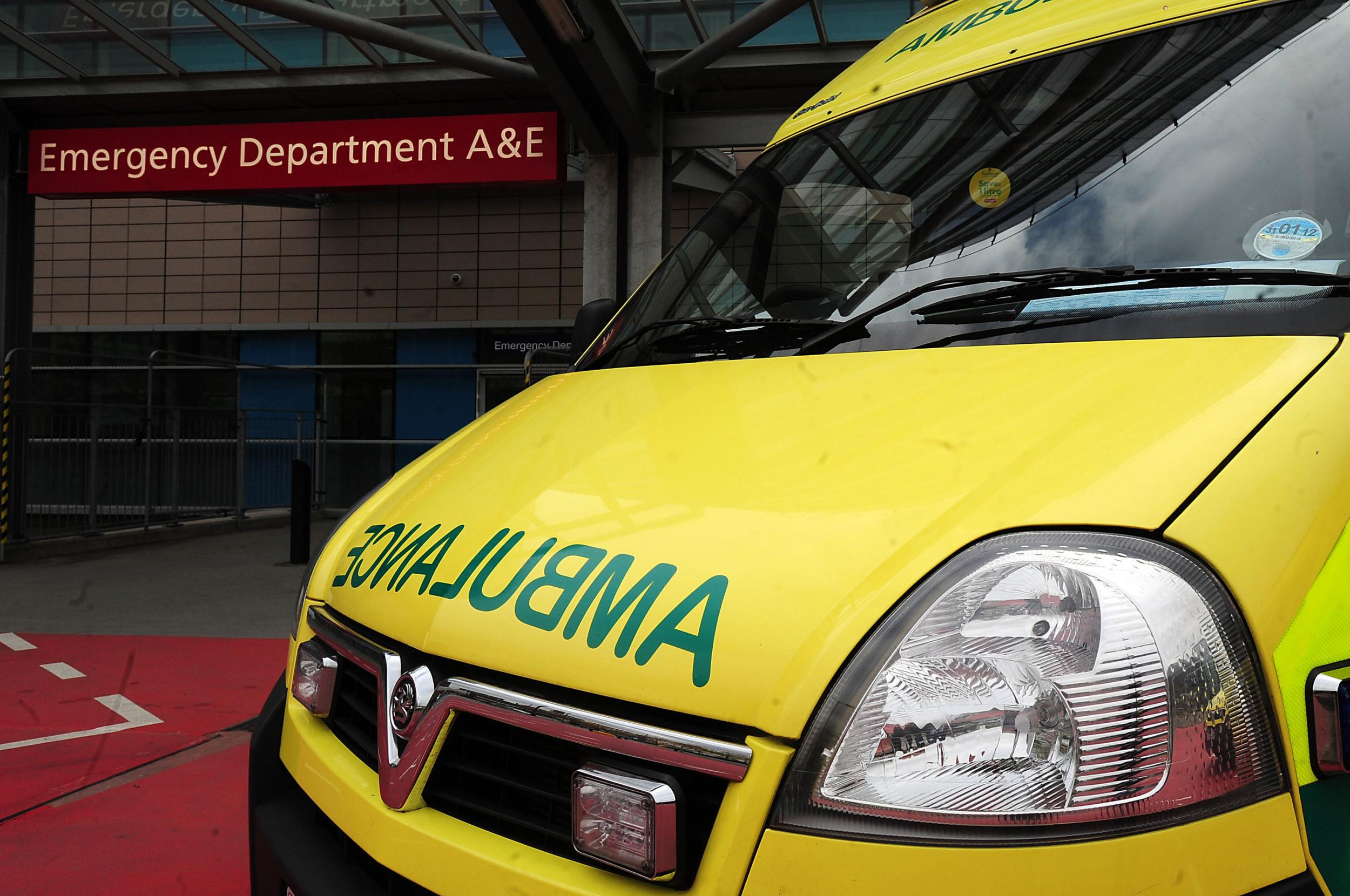NHS winter crisis: Lanarkshire health trust drafts in office workers to help with cleaning amid soaring demand for A&E services
NHS Lanarkshire says it has been 'inundated' over the festive period

Your support helps us to tell the story
From reproductive rights to climate change to Big Tech, The Independent is on the ground when the story is developing. Whether it's investigating the financials of Elon Musk's pro-Trump PAC or producing our latest documentary, 'The A Word', which shines a light on the American women fighting for reproductive rights, we know how important it is to parse out the facts from the messaging.
At such a critical moment in US history, we need reporters on the ground. Your donation allows us to keep sending journalists to speak to both sides of the story.
The Independent is trusted by Americans across the entire political spectrum. And unlike many other quality news outlets, we choose not to lock Americans out of our reporting and analysis with paywalls. We believe quality journalism should be available to everyone, paid for by those who can afford it.
Your support makes all the difference.A Scottish health board is redeploying office staff and postponing non-urgent procedures amid soaring demand for accident-and-emergency (A&E) services across the country.
NHS Lanarkshire said its three hospital sites at Hairmyres, Wishaw and Monklands had been "inundated" over the festive period and "exceptional measures" were necessary to ensure patient safety.
Office workers have been volunteering to help out colleagues in hospitals and GP practices by taking on administrative and cleaning roles over the next five days.
Elective or non-urgent procedures were due to resume at the three hospitals but have now been postponed for the rest of the week due to the increased pressure on services.
Chief executive Calum Campbell said: "This is an unparalleled situation in Lanarkshire and exceptional circumstances need exceptional measures to enable us to deliver our number one healthcare priority - patient safety.
"We asked our office-based staff to consider volunteering to suspend their 'day-job' to support their clinical colleagues, bearing in mind our key purpose and commitment as an organisation to care for people who need our help.
"Not surprisingly, we've had a tremendous response which demonstrates the strong team spirit that exists within the NHS."
New figures show that across Scotland waiting times in A&E units remained below a key target in the week before Christmas as demand rose by almost 20 per cent on the previous year.
In the week ending December 24, 83.3 per cent of patients were seen and either admitted, transferred or discharged within four hours, against a target of 95 per cent.
The figure represents a slight increase from 81.1 per cent the previous week and is down from 93.5 per cent on the same week the previous year.
A total of 26,569 people visited A&E during the week, up almost 20 per cent from the 22,267 attendances in the same week in 2016.
The Royal Hospital for Children in Glasgow experienced a 44 per cent increase in attendances while the city's Queen Elizabeth University Hospital saw a 26 per cent rise.
Wishaw, Raigmore, Borders and Inverclyde hospitals also saw increases of more than 25 per cent.
Health boards attributed the rise in demand to acute seasonal illnesses, with the rate of GP consultations for flu and respiratory infections rising by over a quarter during the period. NHS24 and the Scottish Ambulance Service also reported rises in call volume.
Scottish Health Secretary Shona Robison said: "Our NHS and community health service do a fantastic job all year round but there is no doubt that winter can bring additional demands, and I'd like to thank them once again for the dedication they have shown during this busy winter period.
"We're working with boards to help them cope with pressures and this year alone we have invested £22.4 million to create extra resilience across the system."
Deputy Chief Medical Officer Dr Gregor Smith said: "These figures illustrate the demands being placed on health staff right across Scotland as a result of spikes in various illnesses such as flu.
"We can all play a part in ensuring demand on our most acute services is minimised, however, by taking time to think of the best way to access treatment.
"Only go to A&E if you have had an accident or you are experiencing significant difficulties, such as trouble breathing or severe bleeding."
Press Association
Join our commenting forum
Join thought-provoking conversations, follow other Independent readers and see their replies
Comments